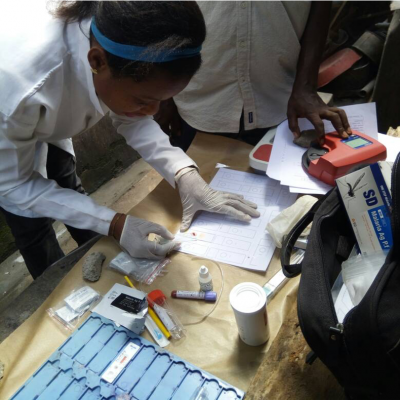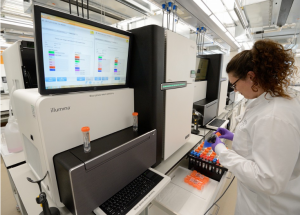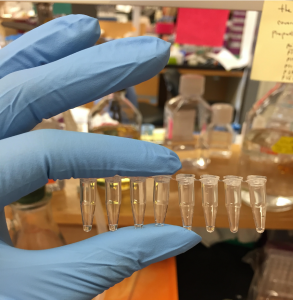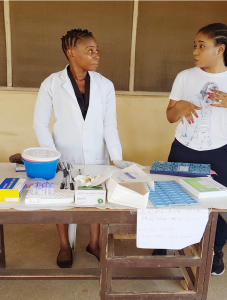Adopting a Data-Driven Approach Towards a Zero-Malaria Nation
Although half of the world is currently malaria free, malaria is still responsible for about half a million deaths recorded in Sub-Saharan Africa (SSA) annually, with Nigeria suffering about 50% of the global malaria burden. Due to the peculiarity of its geographic spread, malaria has been termed a disease of inequity and poverty[i].
In July 2018, 14 countries in SSA began the Zero Malaria Starts with Me movement. It was officially endorsed at the African Union Summit by all African Heads of State in order to collectively combat malaria within the continent[ii].
Following the resolution at the summit, Zero Malaria Starts with Me has been adopted as the running theme for the annual World Malaria Day. Interestingly, there has been a decline in the global deaths caused by malaria as more countries are attaining elimination of the same. Algeria, Argentina, Uzbekistan, and Paraguay have attained a malaria-free status, with no record of malaria cases in the past two years[iii]. This drop in global malaria cases indicate that a zero-malaria world is attainable. According to the RBM Partnership To End Malaria, one of the ways to achieve this is through data-targeted interventions in the prevention, detection, and treatment of malaria cases.
Health Strategy and Delivery Foundation (HSDF), being a strong advocate for evidence-based decision-making has alongside its partners been contributing to the fight against malaria on two major platforms: providing technical assistance to nationwide malaria programs and engaging in operational research/knowledge generation.
With regards to providing national support, the malaria team at HSDF provides advisory services to the government to aid the design and execution of national surveys. Previously, HSDF served as a thought partner in the development of the protocols used for the published 2015 Malaria Indicator Survey. Most recently, we partnered with the National Malaria Elimination Program (NMEP) for the 2020 Malaria indicator survey. The team currently supports NMEP in providing technical assistance, survey management and implementation, training, data analysis and management, and so on.
On the knowledge generation platform, HSDF is currently conducting an independent research – the Malaria Genomics Project. This research has discovered that a key challenge to malaria control in Nigeria is the emergence and spread of Plasmodium falciparum strains that have become resistant to almost all drugs available.
A cross-sectional study was conducted in health facilities and households across 12 Local Government Areas in Lagos State as part of a wider state malaria indicator survey, with the following objectives:
- To profile the circulating malaria parasite species
- To identify if there are artemisinin resistant (ACT) strains among the isolates, and
- To determine the prevalence and transmission intensity of Plasmodium falciparum malaria in Lagos, Nigeria
Data analysis confirms the presence of drug resistance to commonly used anti-malarials in Nigeria including sulphadoxine-pyrimethamine, amodiaquine, and ACTs. The data suggests piperaquine is likely to remain highly efficacious. Our data also found mutation C580Y in the kelch13 gene, the gene that has been validated to cause artemisinin drug resistance in Southeast Asia. Due to the importance of this finding, this result was validated using whole genome sequencing.
Further data analysis is currently being carried out to understand the origin and spread of drug resistance. This will help us understand if the mutations seen arose independently in Nigeria, or if they spread from other parts of the world.
On this occasion of the World Malaria Day 2020, HSDF affirms its commitment to saving lives and livelihoods through its unfeigned drive in providing better evidence to eradicate and ultimately eliminate malaria in Nigeria and the African continent.
[i]https://endmalaria.org/sites/default/files/RBM%20Partnership%20to%20End%20Malaria%20-%20World%20Malaria%20Day%202020%20-%20talking%20points_0.pdf
[ii]https://www.who.int/news-room/campaigns/world-malaria-day/world-malaria-day-2020/key-messages
[iii]https://endmalaria.org/sites/default/files/RBM%20Partnership%20to%20End%20Malaria%20-%20World%20Malaria%20Day%202020%20-%20talking%20points_0.pdf
Grants and Business Development Specialist
We are seeking a highly motivated and experienced Grants and Business Development Specialist to join our organization. The successful candidate will be responsible for identifying funding opportunities, developing grant proposals, and fostering partnerships with potential donors and stakeholders (regional and global). This role plays a vital part in securing funds and resources to support our organization’s mission and projects.
Apply NowPublic Health Consultant, Guinea
The consultant (working with the Accelerator team) will collect results from the tool, organize a meeting with stakeholders to discuss results from the tool, and produce a report on key findings and recommendations from the tool to be shared publicly.
Apply NowPublic Health Associate, Senegal
We are currently in search of an experienced Public Health professional in Senegal to work on the anticipated Nutrition Capacity Development and Financing Platform and provide technical assistance to elevate nutrition financing and strengthen local capacity to support these efforts. The Associate must be bilingual (English and French).
Apply Now



